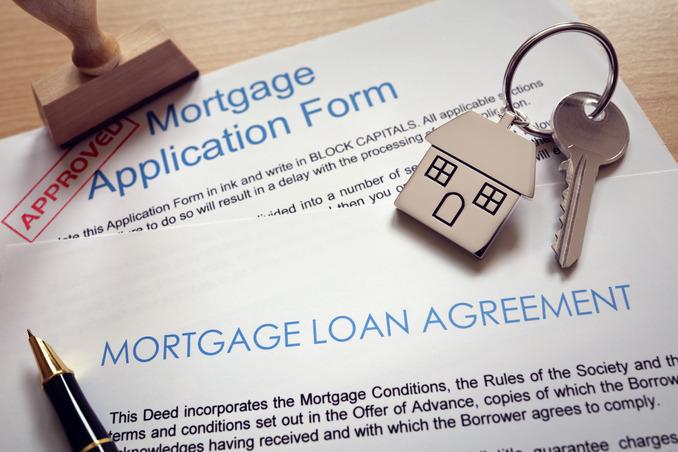Avoid Mortgage Mistakes: What NOT to Do When Applying for a Loan

When embarking on the journey of homeownership, securing a mortgage is often a crucial step. However, the process can be daunting, especially for first-time buyers. To avoid potential pitfalls and ensure a successful loan application, it’s essential to be aware of common mistakes that can derail your efforts. In this comprehensive guide, we’ll explore what NOT to do when applying for a mortgage loan, providing invaluable insights to help you navigate this significant financial decision with confidence.
Understanding the Mortgage Landscape

Navigating the world of mortgages can feel like traversing a complex maze. Before diving into the application process, it’s crucial to gain a solid understanding of the various types of mortgages available, interest rates, terms, and eligibility requirements.
Exploring Mortgage Options

Before committing to a mortgage, it’s essential to explore different options available in the market. From fixed-rate mortgages to adjustable-rate mortgages (ARMs) and government-backed loans, each option comes with its own set of pros and cons.
Assessing Affordability

One of the most common mistakes prospective homebuyers make is overestimating their borrowing capacity. Before applying for a mortgage, conduct a thorough assessment of your financial situation to determine how much you can realistically afford to borrow and repay.
Avoid Common Pitfalls

When applying for a mortgage loan, certain missteps can significantly impact your chances of approval and overall financial well-being. By avoiding these common pitfalls, you can streamline the application process and enhance your prospects of securing favorable loan terms.
Neglecting Credit Score

Your credit score plays a pivotal role in the mortgage approval process. Neglecting to check and improve your credit score before applying for a loan can result in higher interest rates or outright rejection. Take proactive steps to boost your credit score and address any red flags on your credit report.
Skipping Pre-Approval

Skipping the pre-approval process is a recipe for disappointment and delays. Obtaining pre-approval not only gives you a clear understanding of your budget but also signals to sellers that you’re a serious buyer, potentially strengthening your bargaining position.
Ignoring Closing Costs

Many homebuyers focus solely on the down payment and overlook the additional costs associated with closing a mortgage. From appraisal fees to title insurance and legal expenses, it’s essential to budget for these costs to avoid last-minute surprises.
Essential Do’s and Don’ts

To ensure a smooth and successful mortgage application process, it’s imperative to adhere to certain dos and don’ts.
Dos
- Do review your credit report for accuracy regularly.
- Do shop around for the best mortgage rates and terms.
- Do have your financial documents organized and readily available.
- Do seek professional guidance from a reputable mortgage advisor.
Don’ts
- Do not make any major financial changes before or during the mortgage application process.
- Don’t max out your credit cards or take on new debt.
- Don’t overlook the importance of a home inspection.
- Don’t ignore lender requirements or requests for additional documentation.
FAQs
Several factors influence mortgage approval, including credit score, income stability, debt-to-income ratio, employment history, and down payment amount.
To improve your chances of mortgage approval, focus on maintaining a strong credit score, reducing existing debt, saving for a sizable down payment, and demonstrating stable employment and income.
The decision between low interest rates and lower closing costs depends on your individual financial circumstances and long-term homeownership goals. Consider factors such as the length of time you plan to stay in the home and your overall budget.
Yes, it’s often possible to negotiate certain aspects of your mortgage terms, such as interest rates, closing costs, and loan terms. However, the extent to which you can negotiate may vary depending on market conditions and lender policies.
If your mortgage application is denied, take proactive steps to understand the reasons for the rejection. Work on addressing any deficiencies in your financial profile, such as improving your credit score or saving for a larger down payment, before reapplying.
The mortgage approval process can vary depending on factors such as the lender’s workload, the complexity of your application, and the current state of the housing market. On average, the process can take anywhere from 30 to 45 days from application to closing.
Conclusion
Securing a mortgage is a significant milestone in the path to homeownership. By avoiding common mistakes and adhering to best practices throughout the application process, you can enhance your chances of securing favorable loan terms and realizing your homeownership dreams.


